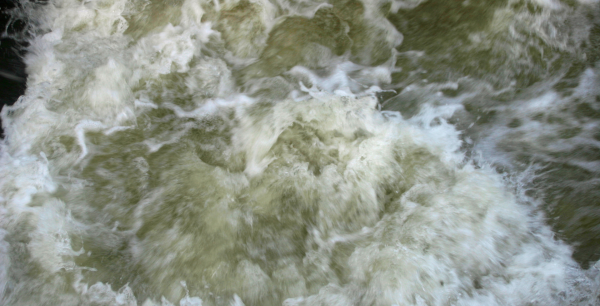FLOODING
Staying safe during and after a flood

Flooding can happen without warning and when we least expect it. If you've been flooded it's important to drain, dry and clean your home quickly. Further information on cleaning up safely is available below.
- Avoid floodwater where possible, and do not let children play in it. It can be dangerous and may contain sewage and other hazards.
- If you have contact with flood water, flooded property or items contaminated with flood water, you should wash your hands with soap and water and dry them thoroughly afterwards.
- You should also do this after going to the toilet and before preparing or eating any food.
- One of the main risks from contact with floodwater or contaminated items is gastroenteritis, which causes diarrhoea and vomiting.
- After a flood it's important to drain, dry and clean your property and belongings as soon as possible. This will reduce the risk of you and others becoming sick from a range of health hazards, including mould.
Cleaning up safely after a flood (PDF)
|
If you feel unwell after coming into contact with floodwater or contaminated items contact your doctor, or call Healthline for free on 0800 611 116. In an emergency call 111. |
While it is important to drain, dry and clean your property as soon as possible, you should also make sure it is safe to enter and you are suitably protected.
Building safety and preparations
- Do not enter your property if it has been deemed unsafe by a building inspector.
- If your gas meter has been affected by water or debris, contact your gas supplier before entering your property.
- Keep children and animals away from previously flooded areas until they have been cleaned and made safe.
- Contact your insurer and landlord before you start work.
- Take photos and videos of the damage and anything that needs to be thrown away before starting the clean-up, for insurance purposes and in case you need to show your property manager or landlord.
Personal safety
Before you start cleaning up you should put on protective clothing and ensure you have suitable gear.
- Wear rubber gloves, sturdy footwear, a long-sleeved top and trousers.
- Put on a face mask (such as a blue surgical mask worn to protect against COVID-19). if cleaning up mould in your home or property this should be upgraded to a well fitted N95/P2 face mask; these are available from hardware shops and chemists.
- Cover any cuts and grazes you may have to avoid them becoming infected.
- Ensure you have a shovel to remove any gross contamination from your property, and bin bags for waste.
During the clean up avoid bringing footwear and clothing into the house that has been in contact with waste and debris, until it has been thoroughly disinfected.
Last updated 26.2.2024
For health advice call Healthline for free anytime on 0800 611 116
Public
health topics
- Alcohol
-
Disease and illness
- Brucellosis (external site)
- Campylobacter
- Chikungunya
- Cholera
- COVID-19
- Cryptosporidium
- Dengue fever
- Foodborne and waterborne illness
- Gastroenteritis
- Giardia
- Haemophilus Influenza Type B
- Hand washing
- Hepatitis A
- Hepatitis B
- Hepatitis C
- Hepatitis E Virus (HEV)
- Hydatid disease (external site)
- Influenza (The Flu)
- Legionellosis (Legionnaires’ disease)
- Leptospirosis
- Listeria
- Malaria
- Measles
- Meningococcal disease
- Mpox
- Mumps
- Norovirus
- Paratyphoid fever (Enteric fever)
- Rheumatic fever
- Rickettsial disease (external site)
- Rotavirus
- RSV and other influenza like illnesses (ILI)
- Rubella
- Salmonella
- Shigellosis
- Tetanus
- Tuberculosis (TB)
- Typhoid fever
- Vibrio parahaemolyticus gastroenteritis
- VTEC disease (STEC infection)
- Whooping cough (Pertussis)
- Yellow fever
- Yersiniosis
- Zika virus
- Early childhood education centre assessments
- Emergency planning and response
- Healthy environments
- Immunisation
- Smokefree environments
- Water
- Workplace health & wellbeing
- Are we the right agency?
- Outbreak preparedness in schools and ECEs